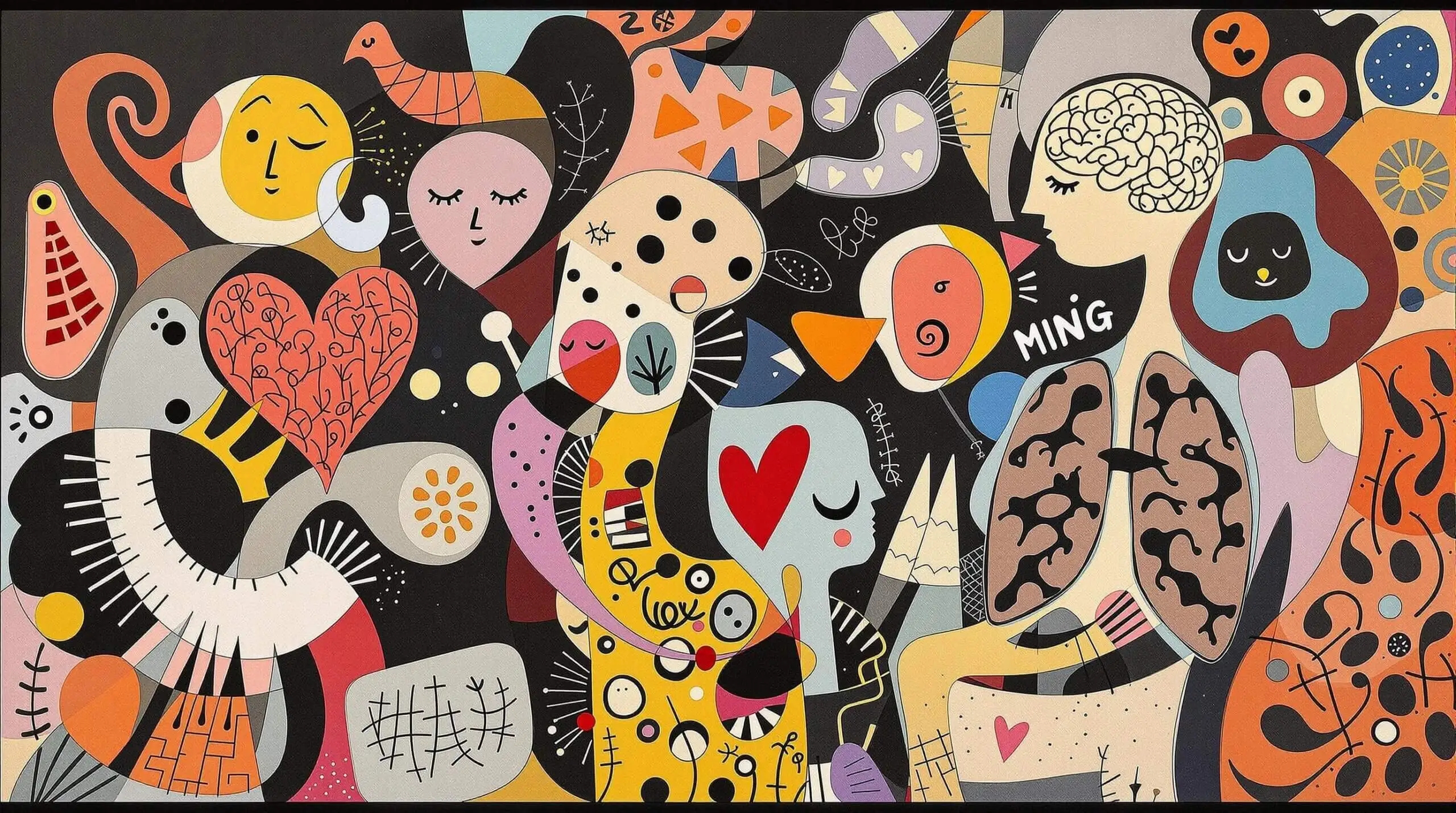The Aging Symphony: Harmonizing Body Systems for Longevity
Explore how synchronizing various body systems can enhance longevity in this enlightening discussion on aging gracefully.

Understanding the Body’s Aging Orchestra: A Holistic View
The Symphony of Aging: More Than Just Time Passing
Our bodies operate like an intricate orchestra, with multiple systems working in perfect harmony. As we age, this harmony can become discordant if we don’t maintain the right conditions. The aging process involves every cell, tissue, and organ system – from our brain to our bones, each playing its unique part in this biological symphony.
The Science of Cellular Aging
At its most basic level, aging occurs in our cells. Scientists have identified several key markers of cellular aging, including telomere shortening, mitochondrial dysfunction, and cellular senescence. Think of telomeres as protective caps on our DNA – they naturally shorten with each cell division, acting as a biological clock. The good news? Research shows we can influence how quickly this clock ticks.
Systems Biology and Longevity
Recent research has shifted from studying individual organs to understanding how body systems interact. The immune system talks to the nervous system, which communicates with the endocrine system, creating a complex web of interactions. This systems biology approach has revolutionized our understanding of aging and opened new possibilities for extending healthy lifespan.
Key Aging Markers and Their Significance
Scientific evidence points to nine hallmarks of aging: genomic instability, telomere attrition, epigenetic alterations, loss of proteostasis, deregulated nutrient sensing, mitochondrial dysfunction, cellular senescence, stem cell exhaustion, and altered intercellular communication. Each of these processes can be influenced by lifestyle choices.
Statistics and Research Findings
The numbers paint a fascinating picture. Studies show that lifestyle interventions can modify up to 80% of aging processes. Research from the Blue Zones – areas where people routinely live past 100 – indicates that diet, movement, and social connections play crucial roles in longevity. Clinical data suggests that implementing specific lifestyle changes can add 10-15 healthy years to our lives.

Orchestrating Your Body’s Systems for Maximum Longevity
The Immune System: Your Body’s Defense Orchestra
The immune system serves as the body’s primary defense against age-related decline. As we age, immune function typically decreases – a process called immunosenescence. However, research shows that regular exercise, good sleep, and proper nutrition can maintain immune function well into later years. Studies indicate that people with strong immune systems show slower aging markers and fewer age-related diseases.
Hormonal Harmony and Aging
Hormones act like the conductors of our body’s orchestra. With age, hormone levels naturally change, affecting everything from metabolism to bone density. Maintaining hormonal balance through diet, exercise, and stress management can significantly impact aging. Research demonstrates that balanced hormones contribute to better cognitive function, muscle maintenance, and overall vitality.
Essential Components of Longevity Enhancement
Nutrition’s Role in System Integration
Food choices directly impact our cellular health. Research shows that specific nutrients can activate longevity pathways in our cells. The Mediterranean diet, rich in omega-3 fatty acids, antioxidants, and fiber, has been linked to longer telomeres and reduced inflammation. Studies indicate that people following this dietary pattern have a 20% lower risk of early death.
Physical Activity: The Movement Symphony
Exercise affects every system in our body. Regular physical activity improves cardiovascular health, strengthens bones, enhances immune function, and promotes neuroplasticity. Research shows that combining aerobic exercise with resistance training provides the most comprehensive benefits for longevity. Just 150 minutes of moderate exercise weekly can reduce biological age by several years.
Sleep and Recovery Rhythms
Quality sleep orchestrates crucial repair processes in our bodies. During deep sleep, our bodies clear cellular waste, repair DNA damage, and consolidate memories. Studies show that consistent, quality sleep correlates with longer telomeres and reduced inflammation. Adults who regularly get 7-9 hours of sleep show better cognitive function and immune response as they age.
Practical Steps for System Optimization
- Maintain a consistent sleep schedule
- Practice time-restricted eating within a 10-12 hour window
- Engage in both aerobic and resistance exercise
- Eat a variety of colorful, whole foods
- Stay socially connected and mentally active
- Practice stress reduction techniques
- Regular health screenings and checkups
- Maintain proper hydration
- Limit exposure to environmental toxins
- Practice mindful eating habits
Advanced Strategies for System Integration
Modern research has identified several advanced strategies for optimizing body systems. Hormetic stressors – like brief exposure to cold or heat – can strengthen cellular resilience. Emerging evidence suggests that practices like intermittent fasting can trigger cellular repair mechanisms and improve system-wide communication.
Mind-Body Connection
The connection between mental and physical health becomes more apparent with each new study. Chronic stress accelerates cellular aging, while positive mental states boost immune function. Meditation and mindfulness practices show measurable effects on telomere length and inflammation markers. Regular practitioners demonstrate better stress resilience and slower biological aging.
Environmental Influences
Our environment plays a crucial role in how our bodies age. Air quality, light exposure, and temperature all affect our cellular health. Research shows that spending time in nature reduces stress hormones and inflammation. Clean air and proper light exposure help maintain our circadian rhythms, which regulate numerous bodily functions.
Social Connections and Longevity
Strong social bonds contribute significantly to longevity. Studies show that social isolation increases inflammation and accelerates aging, while strong social connections protect against age-related decline. People with strong social networks show better immune function and cognitive performance as they age.
Future Directions in Longevity Science
Emerging Research and Technologies
Scientists are making breakthrough discoveries in aging research. New studies focus on senolytic therapies that remove aged cells, stem cell treatments that regenerate tissues, and genetic modifications that might slow aging. These advances could revolutionize how we approach longevity in the coming decades.
Personalized Longevity Strategies
Genetic testing and biomarker analysis now allow for more personalized approaches to longevity. Different individuals respond differently to various interventions based on their genetic makeup and current health status. This personalized approach helps optimize interventions for maximum benefit.
Key Takeaways for Optimal Aging
- Focus on system-wide health rather than individual symptoms
- Implement consistent daily habits that support longevity
- Monitor biomarkers and adjust strategies accordingly
- Maintain strong social connections
- Stay physically and mentally active
- Practice stress management techniques
- Keep up with preventive healthcare
- Adapt strategies as new research emerges
Understanding and optimizing our body’s systems for longevity requires a comprehensive approach. By viewing our body as an interconnected symphony rather than isolated parts, we can better maintain its harmony as we age. The science is clear: through proper nutrition, exercise, sleep, stress management, and social connection, we can significantly influence how we age. The key lies in consistent, sustainable practices that support our body’s natural ability to maintain and repair itself. As research continues to advance, our ability to extend healthy lifespan grows, making it possible to not just add years to life, but life to years.